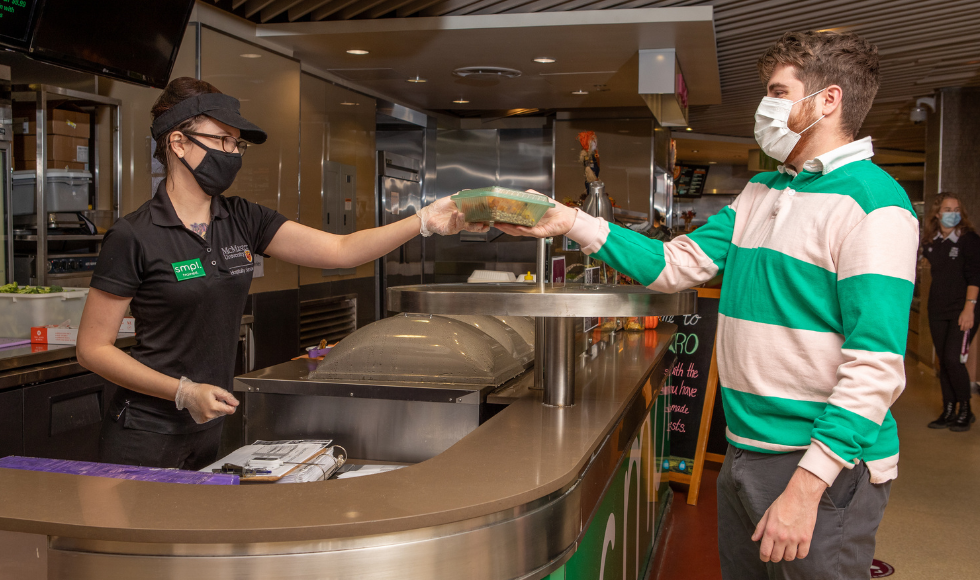McMaster Hospitality Services is going even greener

From reducing the amount of animal products purchased to buying local, Mac’s Hospitality Services is integrating sustainability into its purchases.
Hospitality Services, which runs many food-related services on campus, is making it easier to eat sustainably on campus.
Food is responsible for around 30 per cent of greenhouse gas emissions globally, so finding ways to eat and drink more sustainably is a worthy goal for all of us.
To align with McMaster’s overall sustainability goals and strategic procurement’s objectives, Hospitality Services has created a policy that ensures that socially responsible procurement standards are embedded into the department.
Since adopting the Hospitality Services Green Procurement policy, all non-franchised areas of Hospitality Services have begun integrating sustainable procurement processes and developing sustainable criteria for how it sources its food.
For instance, recent research showed that meat production is a substantial contributor to greenhouse gas emissions, with the use of animals for meat causing twice the pollution of producing plant-based food. Hospitality Services is working to ensure at least 60 per cent of the food purchased is plant-based versus animal-based, and has committed to buying at least 35 per cent of its produce and 30 per cent of all other food from Ontario-based farmers and food producers
“What Hospitality Services’ efforts on sustainability demonstrate is their commitment to purchase goods with a focus on not only the best overall value to the university, but to the environment and the future of the planet,” says Tracie Felton, manager of strategic procurement.
The policy also ensures that only free-run eggs are acquired, and any fish purchased must be sourced from certified sustainable farms and identified in a list of species deemed sustainable. In addition, all non-franchised coffee locations provide only fair or ethical trade coffee and tea, with extra consideration given to local roasters and brands participating in Water Wise programs.
Also embedded in the policy is a commitment to reducing waste by procuring compostable cutlery, take-out containers, coffee cups and other food packages.
“Hospitality Services goes beyond preparing and serving food: we play an integral role in helping to achieve McMaster’s commitment to sustainability and the UN Sustainable Development Goals,” says Chris Roberts, director of Hospitality Services.


